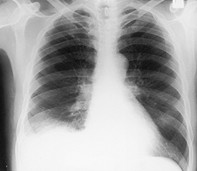Peer Reviewed
Feature Article Respiratory medicine
Chronic cough: a guide to evaluation and management
Abstract
A chronic persistent cough can be exhausting for the patient and a real challenge for the doctor. With a systematic approach to dealing with the problem, the chances of effecting a satisfactory therapeutic outcome are very good.
Key Points
- The most effective management is specific therapy directed at the underlying cause, which results in a positive response in more than 80% of patients. Therefore, a careful assessment to identify the cause of chronic cough is important.
- A chest x-ray should be taken early in the clinical investigation of chronic cough.
- The three most common causes of chronic cough when chest x-rays are normal are postnasal discharge, bronchial asthma and occult gastro-oesophageal reflux.
- Remember that cough may be the sole manifestation of occult reflux or asthma.
- Causes of chronic cough can coexist. If one cause seems likely, this should be treated; if multiple causes seem likely and important, treatment should be directed at each.
- Referral to a thoracic physician should be considered if the patient’s x-ray is abnormal, if the x-ray is normal but there is no response to first line therapy over three to four weeks, or if serious symptoms exist (e.g. haemoptysis).
Purchase the PDF version of this article
Already a subscriber? Login here.

